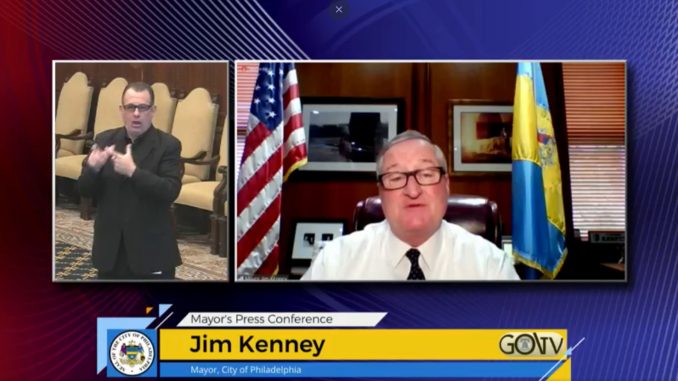
Mayor Jim Kenney announced a plan Friday to safely transition Philadelphia to the “yellow” phase of Governor Tom Wolf’s reopening plan, which is expected by June 5 amid the COVID-19 pandemic.
The Phase 2 COVID-19 pandemic strategy aims to allow the city to resume everyday operations while continuing to suppress COVID-19 infections by maintaining social distancing measures and protecting vulnerable populations, according to the plan.
The containment part of the strategy will involve rapid case identification, separation of confirmed cases through self-isolation and contact tracing. Throughout the summer, the city will offer COVID-19 testing with results that come back in 24 hours at 47 testing sites, according to the plan.
The strategy also involves distributing testing devices to those sites, according to the plan.
Philadelphia currently has 22,629 confirmed COVID-19 cases and 1,284 deaths due to the disease, according to the Department of Public Health. In an effort to combat the disease, all Philadelphia schools closed on March 13, followed by nonessential businesses on March 17. A statewide stay-at-home order was put in place on April 1 and has been is extended until June 4 for Philadelphia and its surrounding counties.
“Philadelphia must approach the next phase of the COVID-19 pandemic in a way that balances the risk of the virus, with the further social and economic damage that could be caused by a continuation of the current restrictions,” Kenney said at Friday’s virtual press conference. “So our strategy allows a number of activities to gradually resume in a way that continues to suppress the virus and keep as many Philadelphians safe and healthy as possible.”
To mitigate the spread of COVID-19 in long-term care facilities, where residents are at a high risk of contracting it due to their age and proximity to others, the city will require staff to wear masks. They will also screen staff before and after shifts and will require facilities to issue restrictions for visitors.
Activities deemed lower-risk, like outdoor recreation and park-related amenities, will be allowed to resume first, followed by higher-risk activities, like shopping and dining. The risk will be determined based on the number of people that could become infected and the likelihood of additional transmission of and fatalities related to COVID-19, according to the plan.
Some non-essential businesses and activities will be allowed to reopen, according to the plan.
The city will ask and require some businesses to follow guidelines, like safety checklists of precautions, to deter the spread of COVID-19.
The Department of Public Health is working on a COVID-19 racial equity plan to increase access to testing, community outreach, and protections for essential workers, according to the plan.
The plan urges residents to follow city guidelines in order to end the lockdown as soon as possible.
“Despite the easing of restrictions, it is still very much safer to stay at home when possible,” Kenney said at the press conference. “I cannot stress that enough.”


Be the first to comment